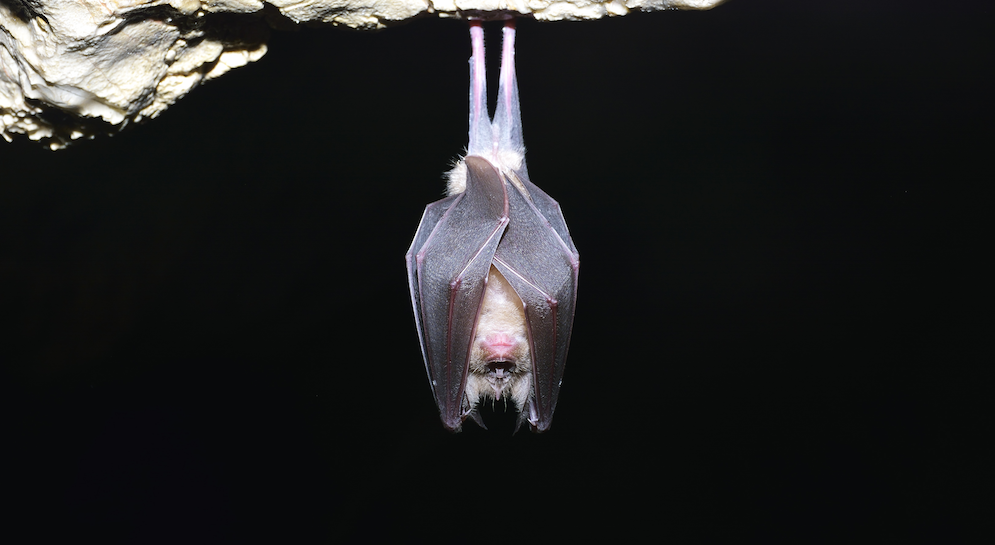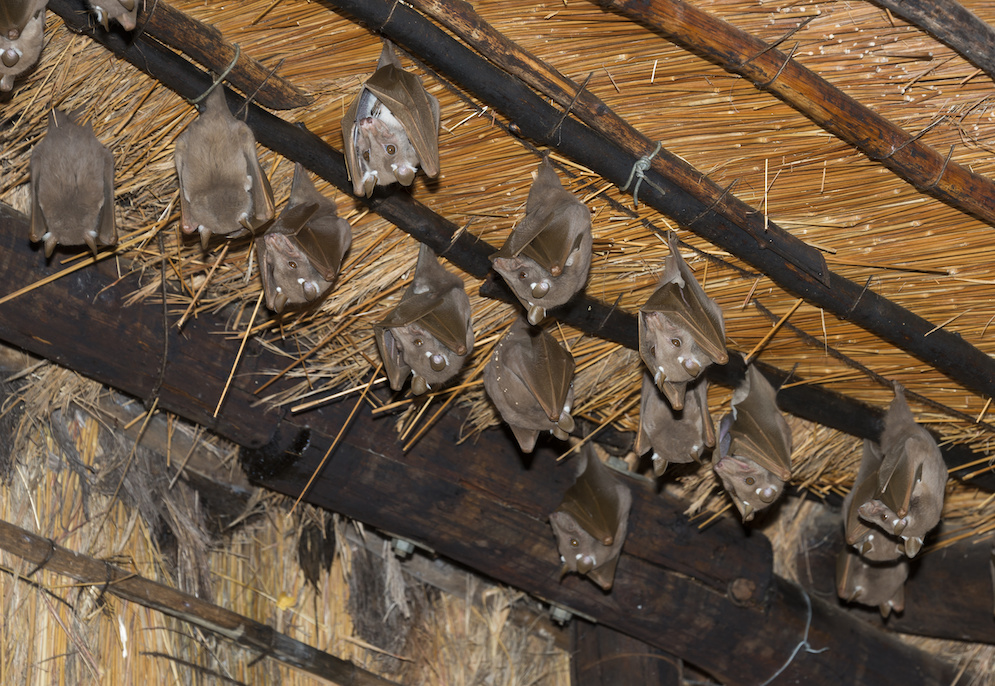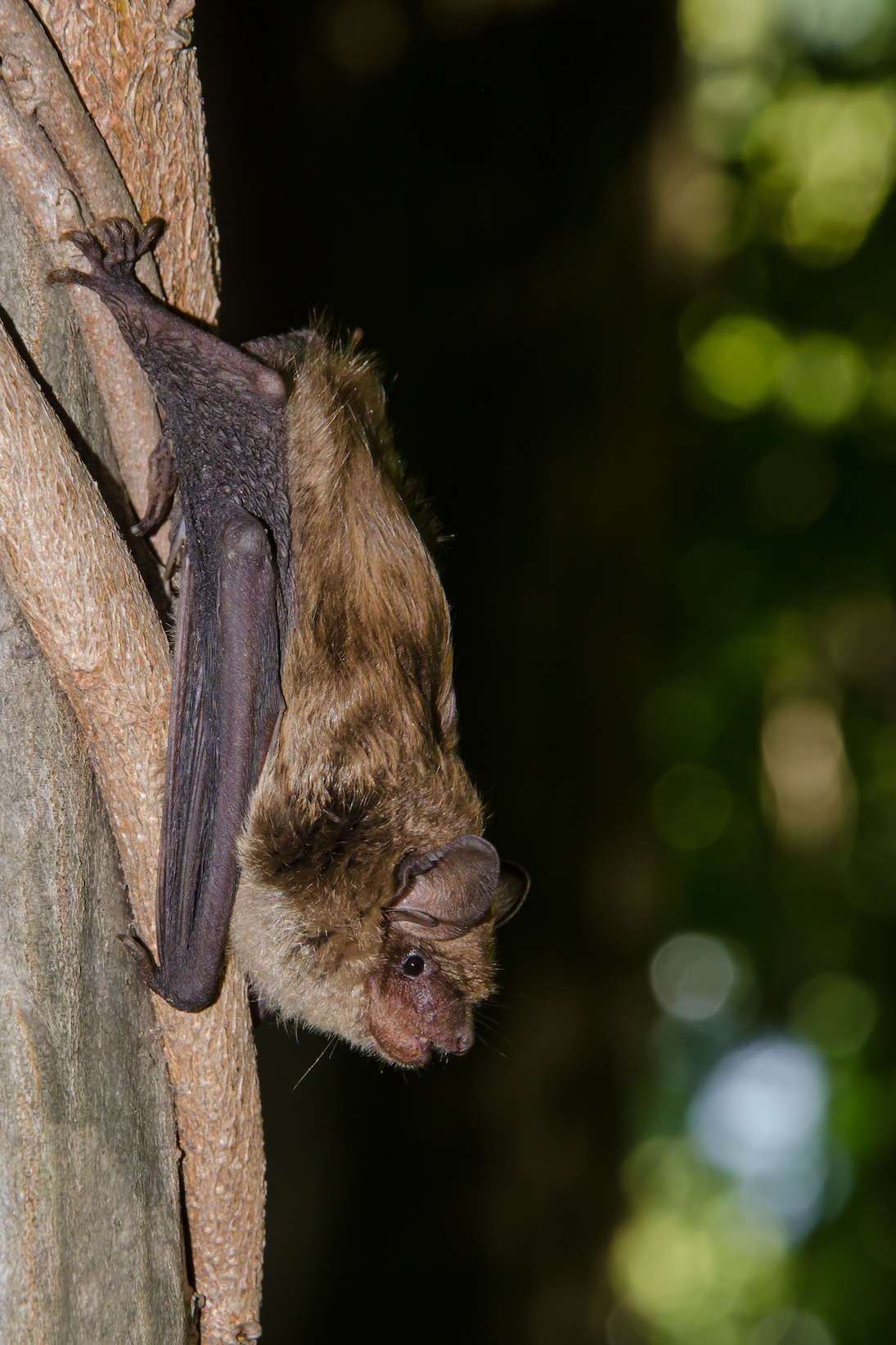The Florida Bat Conservatory (2006) says the following about bats:
Although some mammals can glide, bats are the only mammal that can truly fly. Scientists have classified bats into a unique group or order called “Chiroptera”, which means “hand wing” in Latin. Bats literally fly with their hands! Their wings are much like our hands, but with longer fingers and a thin, but tough, membrane (skin) between the fingers. World-wide there are over 1,000 species of bats. From the fossil records we have learned that bats existed over 65 million years ago. Today, they inhabit all areas of the globe except Antarctica and the extreme desert regions, but most bat species live in the tropics.
Bats eat a variety of things, including insects, fruit, nectar, fish and small vertebrates, but only three species feed on blood. Bats also come in many different colors, shapes and sizes. The largest bat in the world is the Malayan flying fox, a fruit-eater. It can weigh over 2 ½ pounds and have a wing span of over 6 feet! The smallest bat is the Bumblebee bat of Thailand, an insect-eater, which weighs less than a penny and has a wing span of only 5 inches. Bats are not blind, but in addition to sight, many species have highly developed ultrasonic bio-sonar capabilities, referred to as “echolocation,” which they use to navigate and catch insects in total darkness.
Seventy percent of the world’s bats eat insects. One bat can devour up to 3,000 insects in a night! Most insectivorous bats eat their body weight in insects each night. It has been estimated that the 22 million Mexican free-tailed bats roosting in Bracken Cave, Texas during the summer eat 250 tons of insects each night, a large portion of which are agricultural pests. It is little wonder that bats are considered the most important natural controller of night-flying insects.
In the tropics, fruit and nectar feeding bats play a vital role in the survival and re-growth of the rain forests. Fruit bats spread seeds as they fly and digest their food. Nectar feeding bats pollinate many valuable plants. Banana, avocado, date, fig, mango and balsa wood are a few of the trees that depend upon bats. Agaves, saguaro and organ pipe cactus depend on bats for pollination. Even the huge baobab tree in Africa, commonly called the “Tree of Life”, relies on bats for its survival.
There are many myths and misconceptions regarding bats. Bats are not blind. They have the same five senses we do, smelling, hearing, tasting, seeing and feeling. Some bats, however, have highly developed sonar capabilities, called “echolocation.” Bats do not attack people and they won’t get tangled in your hair. Bats are quite timid and basically ignore humans. Bats are not flying rodents. They are in their own scientific order called Chiroptera. There are no Vampire bats in the United States. They are only found in southern Mexico, Central and South America. Vampire bats do not suck blood, they lap it up from a small scrape they make with their very sharp incisor teeth. The most common misconception that people have is that all bats are rabid. This is not true. Studies have shown that less than one percent of bats contract rabies and when they do they usually die within three or four days. Although they do not become aggressive, they can end up on the ground or someplace they do not belong and if handled may bite in self defense and transmit the disease. So never handle a wild bat with your bare hands and make sure your pet’s vaccinations are current. Go to our Links Pageand then click on the Center for Disease Control (CDC) logo for more information about bats and rabies on their website. Never handle or play with any wild animals, including bats. They are wild and meant to be left alone.
Bats are disappearing at alarming rates. Disturbance or destruction of roost sites due to development and vandalism is the greatest threat to the world’s bats. Most bats living in Florida prefer to roost in mature or dead trees or in caves. However, many bats are squeezed out of urban areas due to loss of habitat or take up residence in buildings and become the targets for abuse. Public education and preservation of roost sites are the keys to maintaining Florida’s native bat populations. Related information can be found on the following pages: Bat Habitat, Problem Bats, Bat Houses.
You can help bats by learning more about them and sharing bat information with others. Fear and misunderstanding are one of the worst enemies of bats. This is why education is the main emphasis of the Florida Bat Center. Bat houses are also a perfect way to get involved in conservation. A bat house in your backyard will provide bats with a much needed, safe place to live. They will also do you the return favor of eating insects around the area. You can also help by supporting conservation groups that protect wildlife habitat and preserve natural lands.
Citation: “Bat Facts.” Florida Bat Conservancy Bat Facts, Florida Bat Conservancy, 2006, www.floridabats.org/BatsAre.htm.




